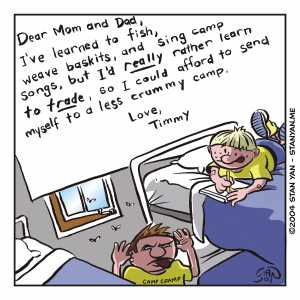As you trade, do you ever just think, “It’s all just random, why even bother trying at all?” If you passively think you have no control, you may end up making less money according to a study by Dr. Timothy Steenbergh and colleagues at the University of Memphis (Steenbergh, May, Meyers, & Whelan, 2005).
Dr. Steenberg and colleagues studied a group of university students who played a computer game of roulette. All participants reported they had gambled recreationally in the past year. Researchers asked participants to describe the strategies they took toward playing computerized roulette. About 25% of the participants reported they had no strategy; they just saw outcomes as random and believed that their actions could in no way influence their outcomes. The remaining participants reported that they had developed a strategy or game plan.
Some of these strategies were based on the gambler’s fallacy, the belief that after a string of losses, the odds should work in your favour or “even out.” Since each spin on a roulette wheel is independent of every other spin, behavioural economists view this belief as irrational. It’s irrational in that actual chances of success are not taken into account. One believes that the chances of success are greater than they actually are.
Results of the study suggest that it is better to use some sort of strategy, even if it is “irrational.” Participants who came up with some sort of strategy, sound or not, believed that their actions had an impact on gambling outcomes. They made more bets than those who didn’t have any strategy and made more money in the end. These findings suggest that a belief in complete randomness may be scientifically accurate, but it may prevent people from taking specific action. Rather than actively trying to win, they may passively think, “Why to bother, it doesn’t matter.”
While trading, it’s easy to think that no matter what you do, you won’t make a profit. The markets can be brutal at times, and it’s tempting to fall prey to a victim mentality. Such beliefs may paralyze you, however. It’s more productive to believe that if you take control, you’ll make a profit.
Even if you have no real control, it helps: You take action, you plan, and think of some sort of strategy. When you take action and make enough trades, the odds may work in your favour, and you’ll end up with profits. So as you trade, take an action-oriented approach. As Mark Douglas suggests in “Trading in the Zone,” the more you find excuses to avoid making trades, the less likely you’ll be at actually taking home profits.
But if you look for an edge, and use this edge to make numerous trades, you’ll increase your chances of success. In trading, there are proven strategies that work under specific market conditions. If you look hard enough, you’ll find them, and use them to your advantage. Don’t passively let opportunities pass you by. Go out and look for many of the endless trading opportunities out there. The harder you try, the more profits you will make.


